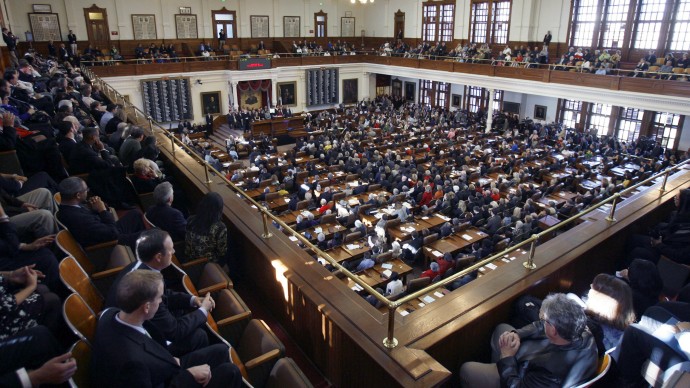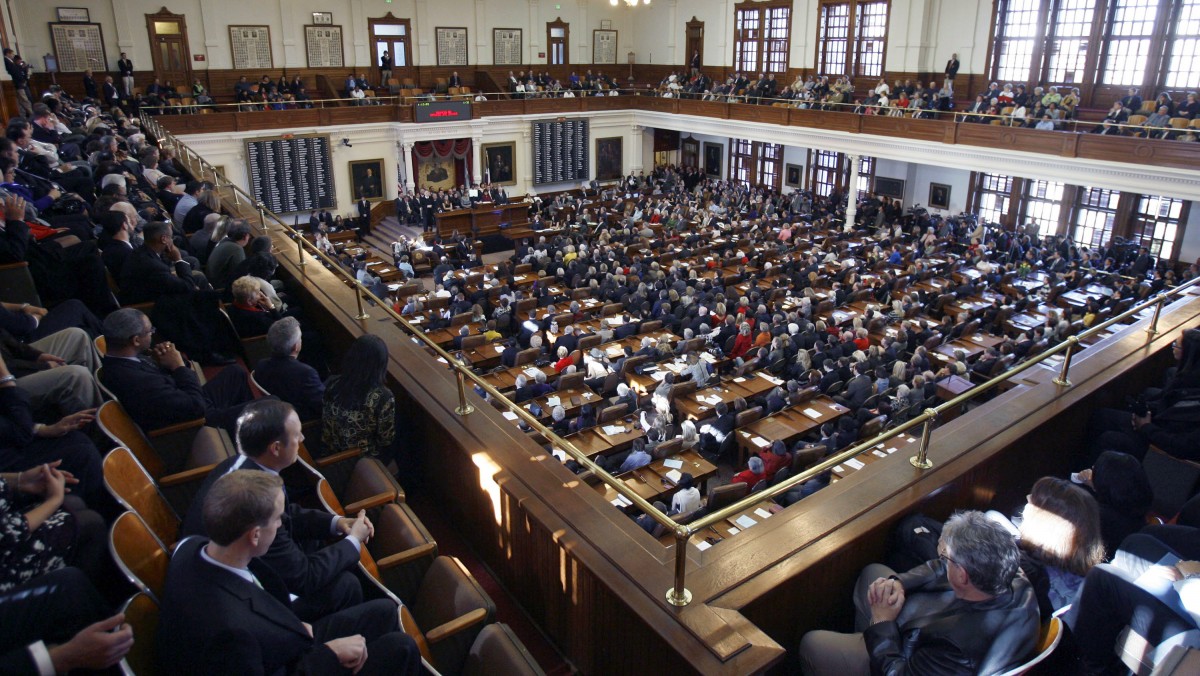
(MintPress) – A new study by government watchdog group Citizens for Responsibility in Ethics in Washington (CREW) concluded that 248 of the 435 total members of the United States House of Representatives used their position to enrich themselves or family members. The questionable ethics lapses detail events where campaign money was used to cover personal expenses or family salaries. In Texas, two-thirds of congressional lawmakers were concluded to have questionable dealings, many of which involved family members. The report comes out at a time when the average congressional approval rating is near an all-time low.
Texas congressman and Republican presidential candidate Ron Paul produced one of the headline-grabbing findings, as the study reported that Paul had paid six relatives salaries from his campaign fund, the most of any member of Congress. Paul paid those salaries to his daughter, his grandson, his daughter’s mother-in-law, his granddaughter, his grandson-in-law and another relative.
Paul is also said to have used Liberty PAC, his political action committee (PAC), to collect reimbursements, pay for his brother’s accounting firm and pay his daughter a salary.
A nepotism theme
Paul certainly wasn’t alone in providing his family compensation through his campaign. Other notable instances, according to the study appropriately titled “Family Affair,” include:
- Rep. Alcee Hastings, (D-FL) paid his girlfriend $622,574.
- Rep. Jerry Lewis (R-CA) paid his wife $512,293.
- Rep. Maxine Waters (D-CA) paid her daughter and grandson a combined $495,650.
- Rep. Ron Paul (R-TX) paid six different relatives a combined $304,599.
- Rep. Buck McKeon (R-CA) paid his wife $238,438.
Texas Republican Blake Farenthold told the Houston Chronicle that the findings are misguided and simply another way to blame Congress for the ills currently being experienced by America.
“In tough economic times, everybody is looking for someone to blame, and Congress is a good target,” Farenthold said.
The report accused Farenthold of being reimbursed by campaign funds for personal credit card charges and that his daughter benefited from campaign money for $279 in catering. Farenthold denied all the claims, saying campaign money never made its way into their pockets.
“To imply that me and my family were enriched by the campaign is simply not true,” Farenthold said.
The report also exposed how 38 representatives earmarked funds to a family business, employer or associated nonprofit group. As a total, the 38 representatives earmarked $149,763,432 to organizations they or their family members were affiliated with. Two of the largest projects earmarked for family members included Texas Republican Kay Granger, who earmarked more than $28.3 million to her son’s project and Florida Republican Bill Young for sending over $16.5 million to two son’s companies.
“This report shows lawmakers still haven’t learned it is wrong to trade on their positions as elected leaders to benefit themselves or their families,” said Melanie Sloan, CREW executive director.
Nepotism within lobbying also revealed itself as a big money-maker for the relatives of representatives. Forty-four representatives had one or more family members lobbying registered to lobby or employed in governmental affairs.
Florida Republican John Mica had the most of any representative, with four family members registered to lobby and another involved with governmental affairs. One of Mica’s sons is the vice president of government relations and a lobbyist for the Fertilizer Institute. Mica has one brother who lobbies on behalf of Florida Petroleum Council and he has both a brother and nephew lobbying on behalf of Credit Union National Association and the National Cooperative Bank.
CREW acknowledges that having family members is not against the law, but notes that it is “not illegal, but ripe for abuse.”
Texas cluster
The report strongly ties ethics lapses and the state of Texas, where it says 21 of 32 congressional lawmakers were tied to the issues. CREW notes that no ethics codes or laws were broken, but said recent congressional approval ratings may have coerced them into more ethical practices.
San Antonio Republican Lamar Smith, who introduced the Stop Online Piracy Act (SOPA) that targeted copyright infringement on the Internet, was said to have accepted more than $50,000 from his leadership PAC since 2008 for travel reimbursements. A spokeswoman for Smith said he sees nothing wrong with the action and is in complete compliance with the law.
“Federal Election Commission guidelines allow members of Congress to pay for campaign expenses, which are then reimbursed by the campaign,” Smith said through a spokeswoman. “These reimbursements are totally in compliance with FEC requirements.”
Democrat Henry Cuellar was accused in the report of reimbursing his wife’s travels with campaign funds and was looking to build a $250,000 forensic lab in the county where his brother is sheriff.
Cuellar said all of his actions are “reasonable and according to law.”
In an interview with MintPress, Sloan said the report was not published to depict representatives as lawbreakers, but rather to educate voters as to where their donations end up. She questioned what voters would think if they found out their campaign contributions were being used as “profit centers” for representatives and their families.
“I think often what the scandal in Washington is not what is illegal, it’s what’s legal. CREW is not alleging that any of these people have violated the law, but I think a lot of donors to campaigns would be surprised to see where their money goes,” Sloan said. “They don’t believe it ends up in the pockets of family members of a candidate.”
For the past year, Congress has endured record-low job approval ratings from voters, and a Real Clear Politics poll averages the current approval rating at 12.4 percent. It has been around four years since Congress has had an approval rating above 30 percent.
Some of that resentment has come from the increasing role of money in politics and political contributions from corporations and individuals. OpenSecrets compiled a list of the top all-time donors from 1989-2012, saying, “The wealthiest corporations and special interest groups usually pepper politicians with overwhelming amounts of money in hope of influencing the political process.”
ActBlue, a democratic PAC, led the way with $60,809,869 in contributions. Sloan said it is important to focus on where the money is coming from, but also what is done with the money once it gets into the bank accounts of politicians.
“There is a lot of focus on donors to campaigns, but there is a lot less focus on where the money goes,” Sloan said. “We also have been interested in how members of Congress use their position as profit centers for their families in an age when so many Americans think Congress members are out for themselves – we wanted to see if that was true.”


